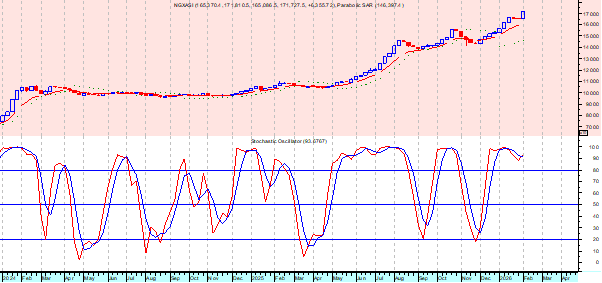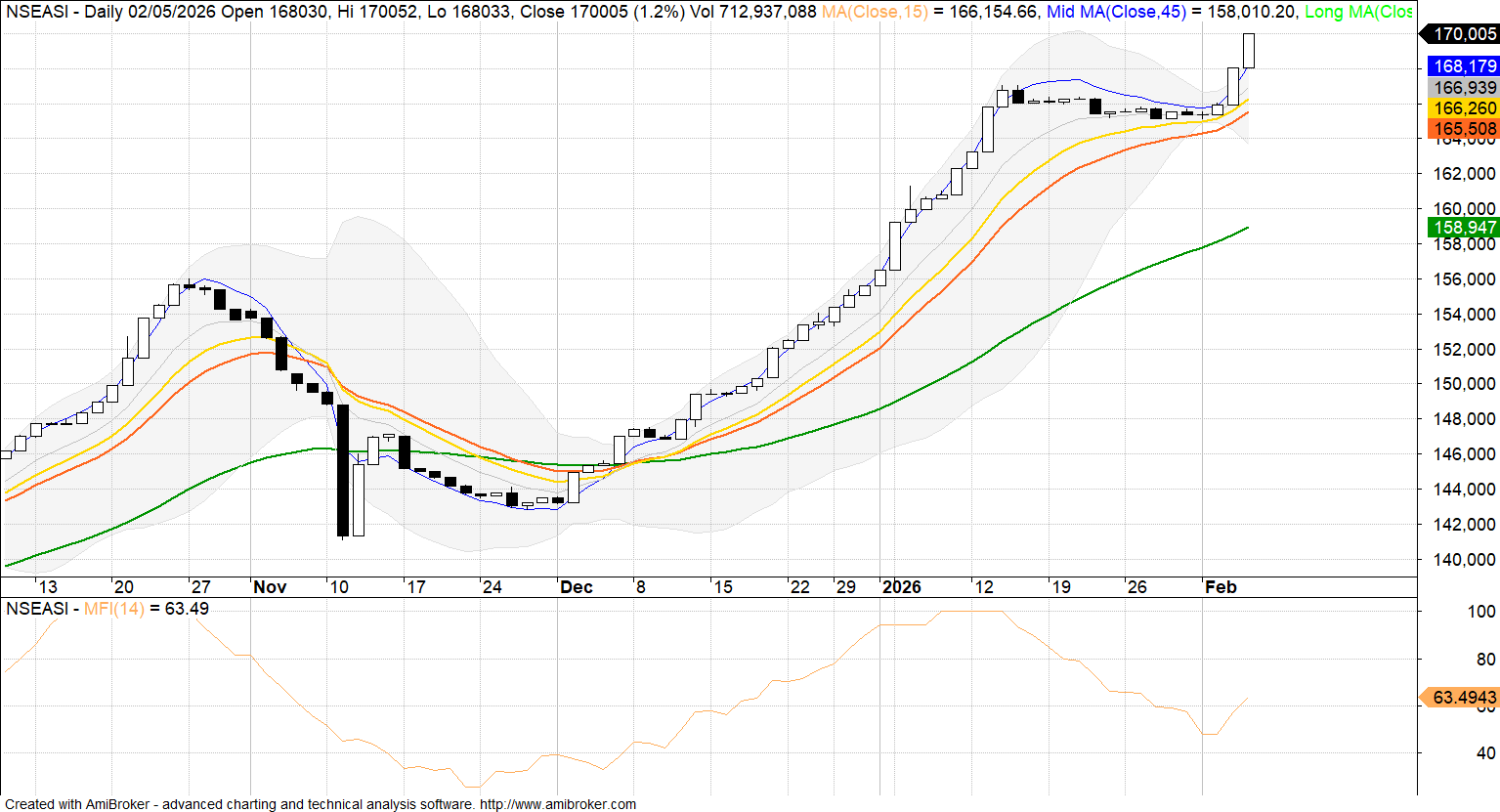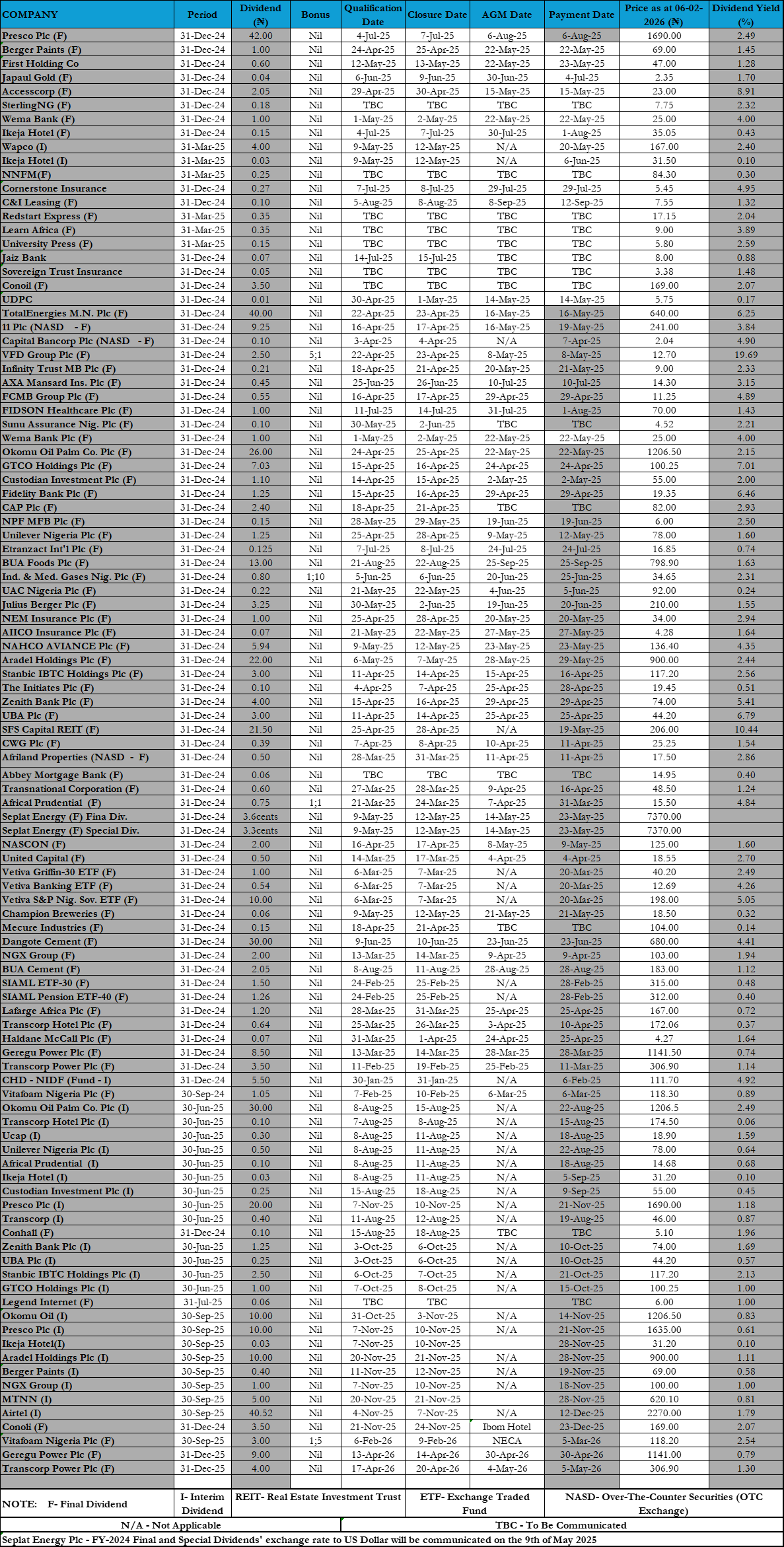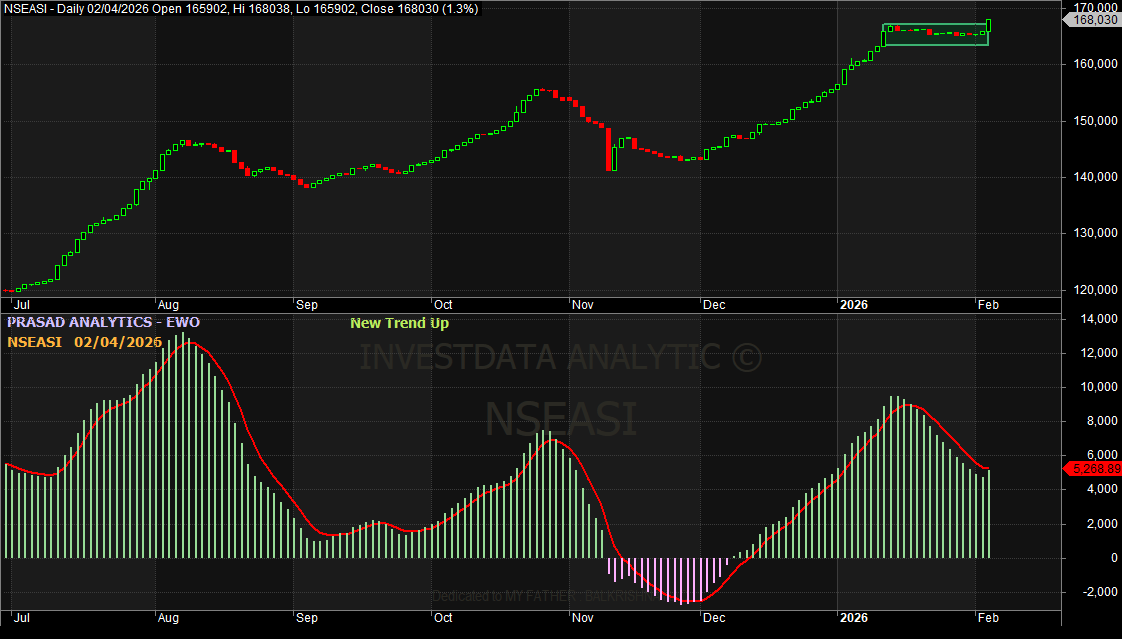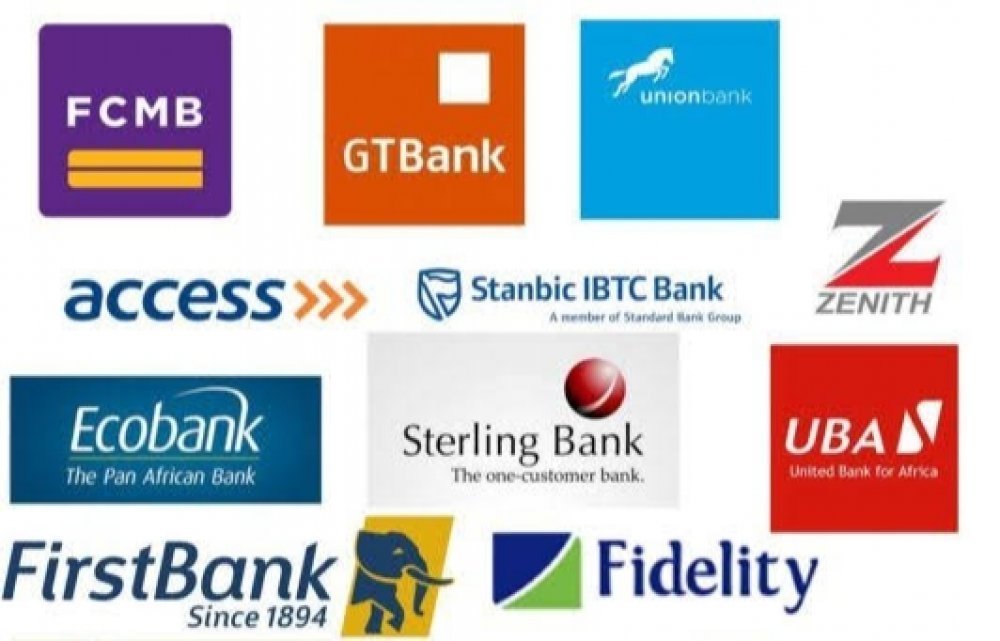
‘s
Market Update for October 14
The Nigerian stock market took a breather on Tuesday, pausing its impressive eleven-day winning streak as profit-taking activities weighed on momentum and slowed the bullish pace that had dominated the bourse since early October. The session ended flat, underscoring a shift toward cautious trading after several sessions of sustained upward movement that pushed the benchmark index to new highs.
This development highlights a familiar market pattern: extended rallies are often followed by consolidation phases as investors rebalance portfolios, lock in profits, and await fresh triggers for the next move. Over the past two weeks, the market had posted consistent gains, fueled by increased positioning in fundamentally strong stocks, renewed interest from institutional investors, and anticipation of third-quarter earnings results.
Tuesday’s muted performance was not unexpected since many investors have been closely monitoring technical resistance levels around 147,000 to 148,000 basis points, while keeping an eye on macroeconomic indicators and the earnings calendar. As the rally matured, some traders opted to de-risk their positions, taking advantage of elevated prices to book profits. This led to a mixed trading session, with selling pressure concentrated in previously strong counters and volume activity moderating compared to previous sessions.
Investor Behaviour and Sentiment:
Market behavior on Tuesday reflected a cautious but calculated approach. Institutional investors and retail traders displayed restraint, holding back from aggressive buying despite the underlying bullish trend. Sentiment was largely shaped by expectations of Q3 earnings reports, which many expect to serve as the next major catalyst for directional movement.
With inflationary pressures, exchange rate volatility, and monetary policy tightening shaping the broader macroeconomic landscape, investors are weighing the potential impact of these factors on corporate performance and valuations. Defensive stocks and dividend-paying counters remain attractive to many, particularly in the banking, telecoms, and industrial goods sectors.
The ongoing rally has so far been supported by liquidity flows from institutional players and bargain hunting from retail investors seeking value in beaten-down but fundamentally sound stocks. Tuesday’s pause is therefore more of a strategic consolidation than a sign of weakness—a breather that allows market forces to reset before the next significant move.
Technical View:
From a technical perspective, the Nigerian Exchange Group All-Share Index (ASI) continues to trade comfortably above its 20-day and 50-day moving averages, a signal that the broader uptrend remains intact. The flat close around 147,710.96 points positions the index squarely at a critical technical inflection zone between 147,000 and 148,000 points, where previous rallies have encountered short-term resistance.
Indicators such as the Relative Strength Index (RSI) and Money Flow Index (MFI) suggest that while momentum has slowed, the market is not yet overbought, leaving room for additional upside if buying pressure resumes. Volume analysis also indicates that the current profit-taking is more controlled than panic-driven, which aligns with a typical mid-rally consolidation pattern.
A decisive breakout above the resistance zone could spark another wave of strong gains, possibly extending the year-to-date rally. Conversely, if sell pressure intensifies, the market could retest key support levels in the mid-146,000 points region. However, underlying strength, supported by corporate earnings expectations, is likely to cushion any significant downside.
Macroeconomic and Policy Context
The performance of the equities market cannot be viewed in isolation from the prevailing macroeconomic environment. Elevated inflation, tight monetary policy, and continued foreign exchange volatility remain major considerations for investors. Interest rates are high, increasing the attractiveness of fixed-income instruments for risk-averse investors, but the equity market has continued to outperform, buoyed by strong corporate fundamentals and attractive dividend yields in key sectors.
The upcoming Q3 earnings season is expected to provide fresh direction for the market. Sectors such as banking, telecoms, industrial goods, and consumer staples are under close watch, as investors anticipate performance figures that will shape portfolio reallocation strategies. Policy developments from the Central Bank and government fiscal interventions are also expected to influence investor behavior in the coming weeks.
Market Outlook
Looking ahead, the market is expected to remain in a consolidation phase in the short term, with a mix of profit-taking and bargain hunting dominating activity. Traders and investors will likely adopt a selective approach, focusing on fundamentally strong counters with solid earnings prospects and attractive valuations.
The overall sentiment remains cautiously bullish, with many participants viewing any pullback as an opportunity to accumulate positions ahead of earnings releases. Market breadth and liquidity will be key indicators to watch, as renewed buying momentum could quickly lift the index out of its current consolidation band.
Market Performance
Tuesday’s trading session closed on a muted note with market breadth tilting negative, as 35 decliners outweighed 22 gainers. Top laggards included Fidson Healthcare Plc (-6.67%), Berger Paints Nigeria Plc (-5.92%), Ellah Lakes Plc (-3.46%), FCMB Group Plc (-2.74%) and United Capital Plc (-2.31%). Others on the losers’ list were Nigerian Breweries Plc (-1.95%), Dangote Sugar Refinery Plc (-1.64%), Oando Plc (-1.23%), United Bank for Africa Plc (-1.17%), Access Holdings Plc (-0.96%) and NASCON Allied Industries Plc (-0.80%).
On the gainers’ chart, Regency Alliance Insurance Plc emerged as the top performer, while Austin Laz & Company Plc led the losers’ table.
Trading activity slowed as total volume declined by 19.63% to 495.03 million units, while value traded stood at ₦17.32 billion across 25,607 deals. Fidelity Bank Plc dominated volume with 50.90 million units (19.40%), followed by Chams Plc (14.24%) and Tantalizers Plc (13.98%). In value terms, MTN Nigeria Communications Plc led the chart with ₦2.46 billion (29.76%), ahead of Dangote Cement Plc and Lafarge Africa Plc, showing that large-cap stocks continue to dominate trading activity.
At the close of trading, the Nigerian Exchange Group All-Share Index (ASI) stood flat at 147,710.96 points, with market capitalisation holding steady at ₦93.76 trillion. Year-to-date return remained robust at 43.51%, reinforcing the strength of the underlying trend. While the market may have paused for breath, this consolidation phase is widely viewed as a healthy development that could pave the way for another leg up once earnings season begins to provide fresh triggers for investors.



